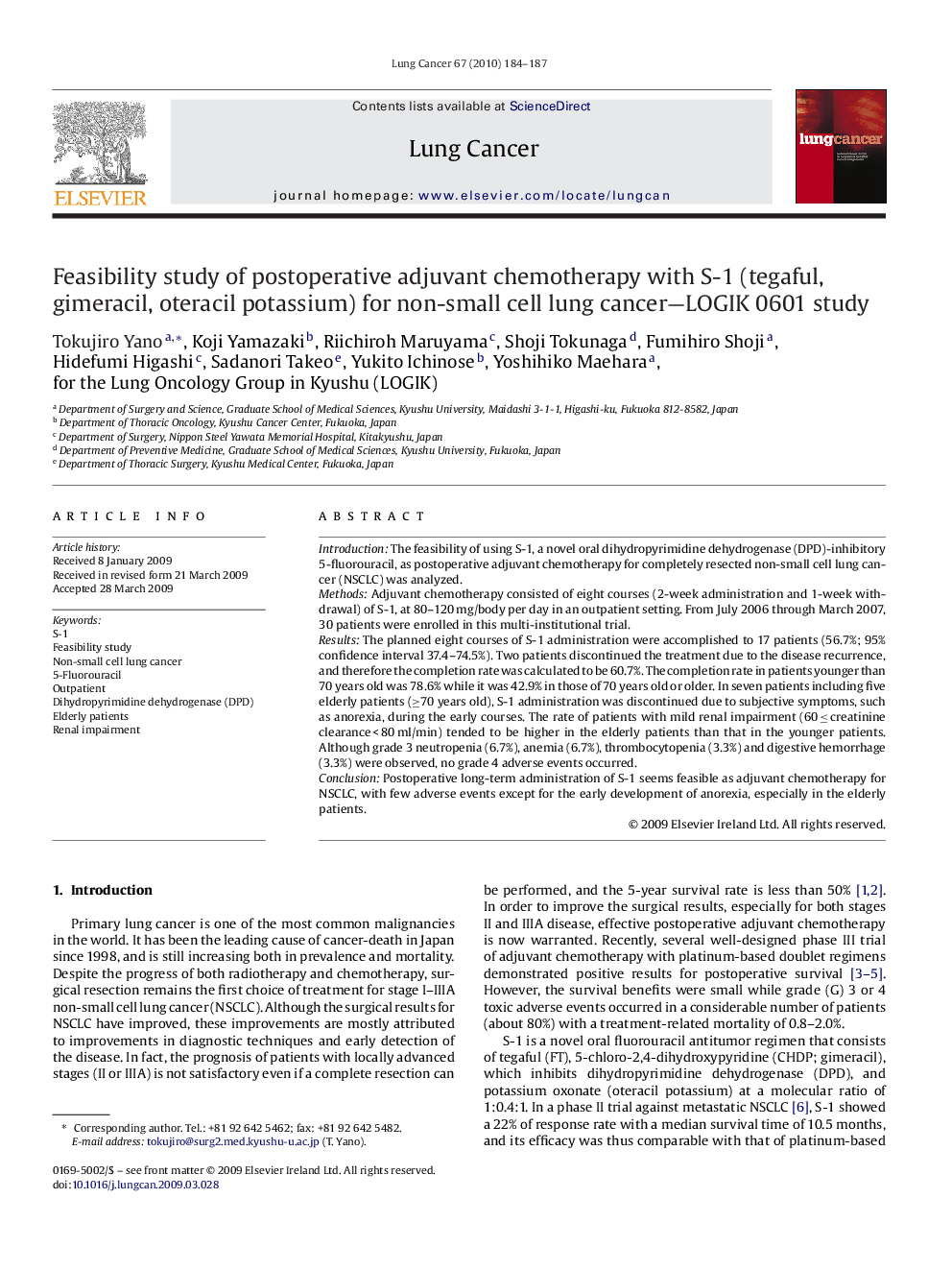| Article ID | Journal | Published Year | Pages | File Type |
|---|---|---|---|---|
| 2142833 | Lung Cancer | 2010 | 4 Pages |
IntroductionThe feasibility of using S-1, a novel oral dihydropyrimidine dehydrogenase (DPD)-inhibitory 5-fluorouracil, as postoperative adjuvant chemotherapy for completely resected non-small cell lung cancer (NSCLC) was analyzed.MethodsAdjuvant chemotherapy consisted of eight courses (2-week administration and 1-week withdrawal) of S-1, at 80–120 mg/body per day in an outpatient setting. From July 2006 through March 2007, 30 patients were enrolled in this multi-institutional trial.ResultsThe planned eight courses of S-1 administration were accomplished to 17 patients (56.7%; 95% confidence interval 37.4–74.5%). Two patients discontinued the treatment due to the disease recurrence, and therefore the completion rate was calculated to be 60.7%. The completion rate in patients younger than 70 years old was 78.6% while it was 42.9% in those of 70 years old or older. In seven patients including five elderly patients (≥70 years old), S-1 administration was discontinued due to subjective symptoms, such as anorexia, during the early courses. The rate of patients with mild renal impairment (60 ≤ creatinine clearance < 80 ml/min) tended to be higher in the elderly patients than that in the younger patients. Although grade 3 neutropenia (6.7%), anemia (6.7%), thrombocytopenia (3.3%) and digestive hemorrhage (3.3%) were observed, no grade 4 adverse events occurred.ConclusionPostoperative long-term administration of S-1 seems feasible as adjuvant chemotherapy for NSCLC, with few adverse events except for the early development of anorexia, especially in the elderly patients.
